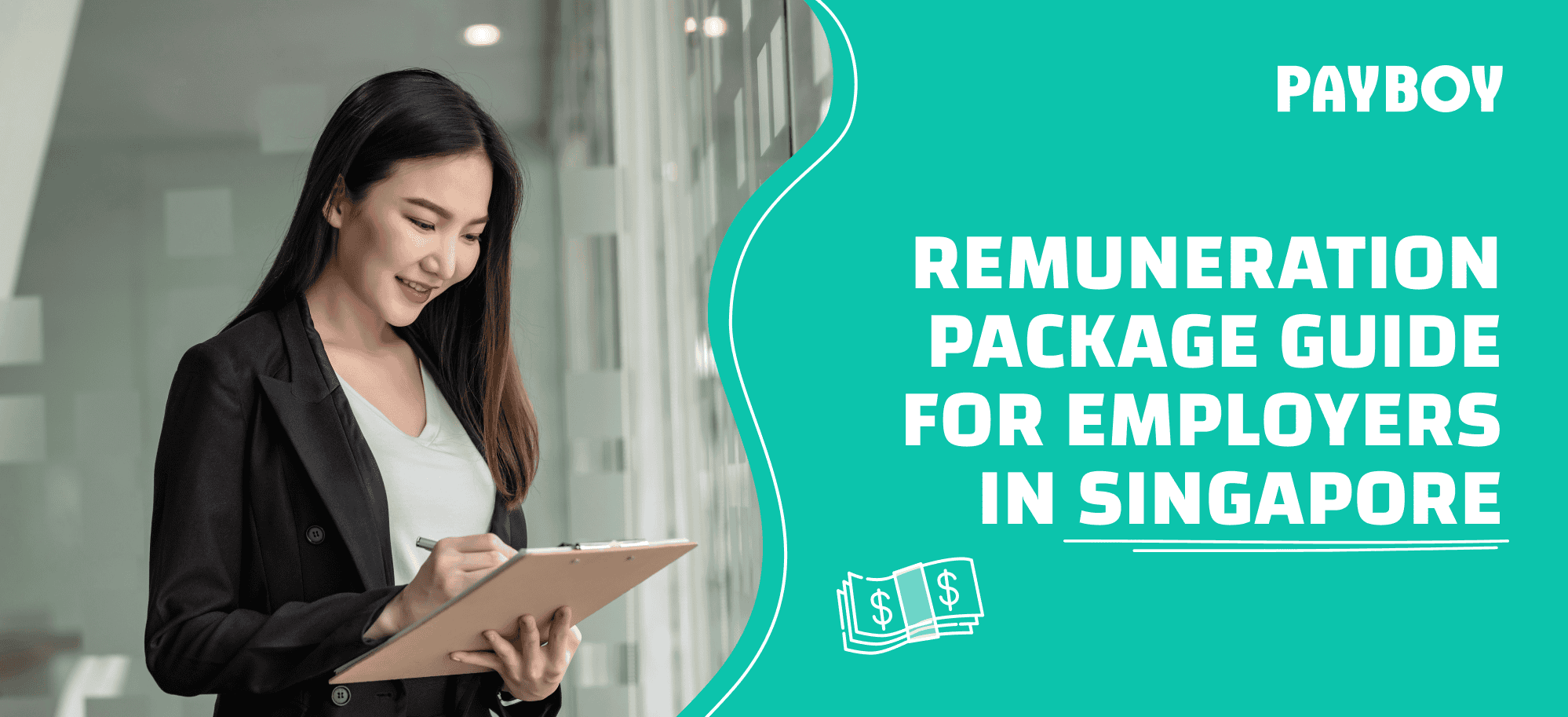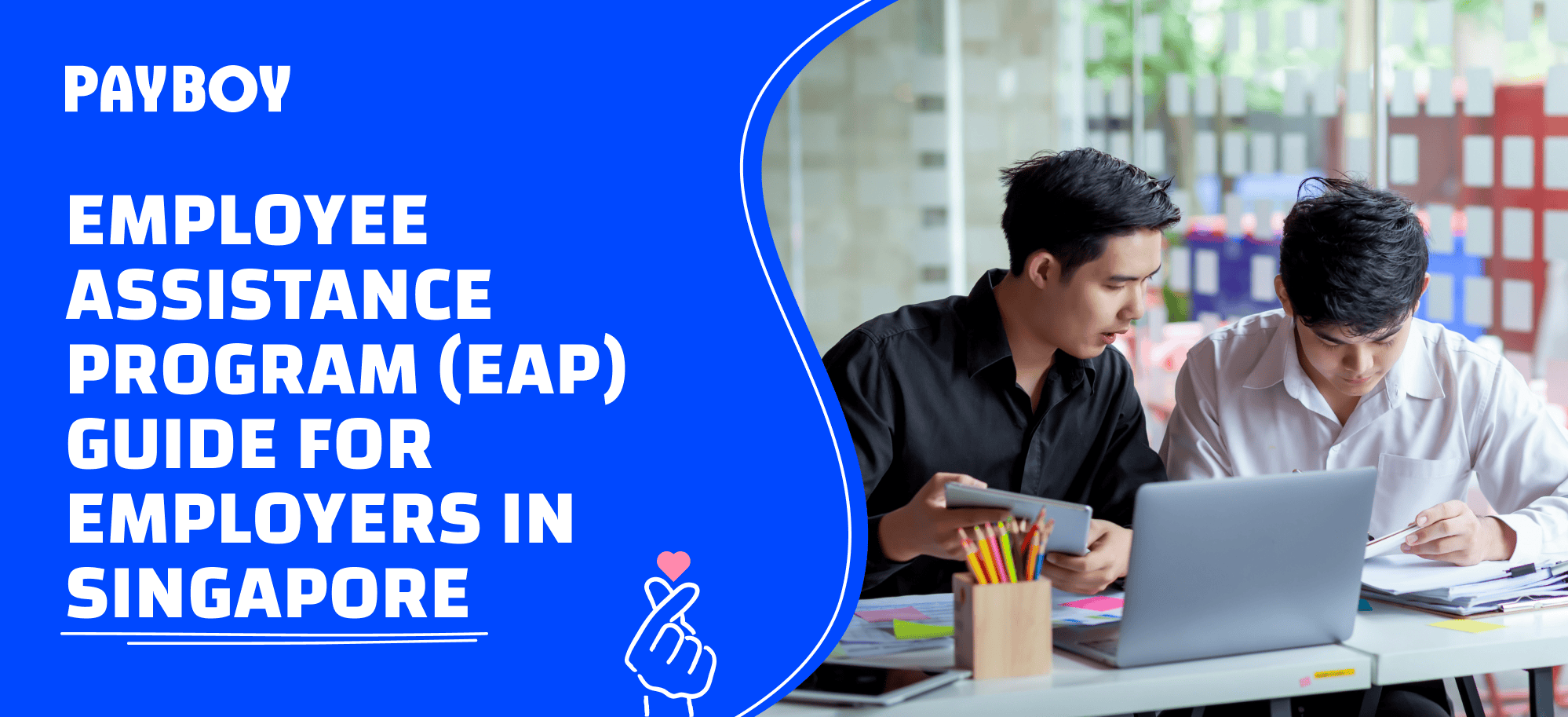In today’s ever-evolving employment landscape, attracting and retaining top talent is more crucial than ever. For businesses operating in Singapore, offering an attractive remuneration package is a key component of talent acquisition and competitive advantage strategies. In this guide, we unpack every important thing about the remuneration package, starting from the key components, valuable tips, to the CPF treatment. Let’s explore our guide to making your business thrive by better rewarding its most valuable asset - your people!
What is a remuneration package?
A remuneration package encompasses all forms of compensation provided to an employee. This includes the base salary, bonuses, benefits, and other financial and non-financial rewards. Essentially, it is the totality of what an employee receives in exchange for their services, structured to attract, motivate, and retain talent.
What is the difference between a salary and a total remuneration package?
The main difference between a salary and a total remuneration package lies in their components.
- Salary is the fixed amount of money paid to an employee on a regular basis, typically monthly or bi-weekly. This is a predictable and stable income stream.
- Remuneration package includes the salary plus additional benefits such as bonuses, healthcare benefits, retirement contributions, stock options, and non-monetary perks like flexible working hours, professional development opportunities, and more.
Simply put, the salary is a significant part of the remuneration, and the additional elements make up the total remuneration package that an employee receives.
What are the key components of a remuneration package?
A comprehensive remuneration package typically includes the following components:
- Base Salary: the fixed amount paid to an employee for their job role, usually stated as an annual figure.
- Bonuses: variable payments awarded based on performance, company profitability, or other criteria. These can be:
- Annual bonuses: typically given at the end of the fiscal year.
- Performance bonuses: linked to individual or team performance metrics.
- Signing bonuses: given to new hires as an incentive to join the company.
Tip: Learn about the most common types of bonuses and whether they are subject to CPF in our “Bonus guide for employers in Singapore”!
- Benefits: non-cash perks provided to employees, which may include:
- Healthcare insurance: coverage for medical, dental, and vision expenses.
- Retirement plans: contributions to retirement savings, such as the Central Provident Fund (CPF) in Singapore. Get detailed information from our CPF guide for employers.
- Paid time off: vacation days, sick leave, and public holidays.
- Life and disability insurance: financial protection in case of serious injury or death.
- Stock options and equity: grants of company stock or options to purchase stock, aligning employees' interests with those of shareholders.
- Non-financial rewards: these can significantly enhance an employee’s job satisfaction and include:
- Flexible Working Arrangements (FWA): Options such as remote work or flexible hours. Learn more about the new Tripartite Guidelines on Flexible Work Arrangement in our guide.
- Professional development: opportunities for training, courses, and career advancement. Discover more about our Career Conversion Programmes (CCPs) guide to strategically address skill gaps and unlock diverse talent pools.
- Allowances: additional payments for specific purposes, such as transportation, housing, and meals.
How to create an attractive remuneration package?
Creating an attractive remuneration package involves balancing financial rewards with non-financial benefits to meet the diverse needs and preferences of employees. Here are some strategies:
- Competitive base salary: Ensure the salary is competitive within the industry to attract top talent.
- Performance incentives: Introduce performance-based bonuses and commissions to motivate employees to achieve their targets.
- Comprehensive benefits: Offer a wide range of benefits that cater to employees' health, well-being, and financial security. This includes healthcare, retirement plans, and insurance. On the other hand, are you thinking of flexible benefits? Learn more about our “Flexible benefits guide for employers” to provide your employees with more choice over their rewards and compensation
- Flexible work options: provide flexibility in working hours and locations to help employees balance their work and personal lives.
- Career development: invest in employee development through training programmes, workshops, and clear career progression paths.
- Recognition programmes: implement programmes that recognise and reward employees for their contributions, fostering a culture of appreciation.
- Work-life balance: promote a healthy work-life balance by encouraging the use of paid time off and offering support for mental health and wellness.
- Tailored packages: customise remuneration packages to meet the specific needs of different employee groups, such as young professionals, mid-career employees, and senior executives.
A well-designed remuneration package is a powerful tool for attracting, motivating, and retaining talent. By understanding the components and strategies to create attractive packages, employers in Singapore can leverage their compensation structures to gain a competitive advantage.
Is there any difference in the remuneration package for local and foreign employees?
In Singapore, while the core components of remuneration packages for local and foreign employees might be similar, there can be differences based on specific needs and regulatory requirements. For instance:
- Housing allowances: Foreign employees may receive housing allowances to help cover the cost of living in Singapore.
- Relocation expenses: Companies may cover relocation costs for foreign hires, including travel, shipping of personal belongings, and temporary accommodation.
- Central Provident Fund (CPF): For Singaporean citizens and Permanent Residents, employers must contribute to the CPF. Foreign employees, on the other hand, are not required to contribute to CPF, and employers often compensate with higher salaries or other benefits.
Is the remuneration package subjected to CPF and taxes?
As stated on the Central Provident Fund (CPF) Board, the remuneration package falls under the category of "remuneration in money," encompassing bonuses, and is therefore subject to CPF contributions.
Likewise, the Inland Revenue Authority of Singapore (IRAS) classifies all gains and profits derived by an employee in respect of his/her employment as taxable, unless they are specifically exempt from income tax or are covered by an existing administrative concession.
Tip: Check out our CPF guide for employers to learn more about CPF contributions for additional wages such as AWS and other bonus types.
Is remuneration package classified as Ordinary Wages (OW) or Additional Wages (AW)?
The remuneration package components are classified into Ordinary Wages (OW) and Additional Wages (AW) as follows:
- Ordinary Wages (OW): These are regular wages earned for work done in the current month and are subject to monthly CPF contributions. Examples include basic salary, overtime pay, and monthly allowances.
- Additional Wages (AW): These are payments not granted monthly and can include annual bonuses, Annual Wage Supplement (AWS), paid time off, signing bonuses, and other incentive payments. CPF contributions for AW are subject to an annual ceiling.
Tip: Learn about the most common types of bonuses and whether they are subject to CPF in our “Bonus guide for employers in Singapore”!
Can employees negotiate their remuneration package?
Yes, employees can negotiate their remuneration packages. Effective negotiation involves researching industry standards, presenting a strong case based on their skills and achievements, and considering all components of compensation, such as bonuses, benefits, and work conditions. Flexibility and openness to compromise are also crucial for reaching a mutually beneficial agreement.
Can I change the remuneration package after the employee confirmation?
Changes to the remuneration package after employee confirmation are possible, but they should be managed with transparency and mutual consent. Employers need to review the employment contracts to ensure any changes comply with the agreed terms. Clear communication is critical; employers must discuss the reasons for the changes with employees and secure their agreement. Additionally, any modifications must adhere to labour laws and regulations in Singapore to ensure legal compliance and maintain trust in the employer-employee relationship.
How often should remuneration packages be reviewed?
Regular reviews of remuneration packages are crucial to ensuring they remain competitive and aligned with the company’s goals. Reviews should ideally occur:
- Annually: to adjust for inflation, market changes, and company performance.
- During performance reviews: to align compensation with individual performance and achievements.
- After major company changes: this could be after mergers, acquisitions, or significant shifts in business strategy.
- Market benchmarks: periodically compare packages against industry standards to stay competitive.
Efficiently manage remuneration packages with Payboy HR and payroll software!
Managing employees’ remuneration packages, including salaries and bonuses, can be complex, especially with a large team and varied working arrangements. Rest assured, Payboy HR and Payroll Software is here to simplify the process!
With our fully compliant, customisable, and integrated payroll processing module, you can automate the CPF calculations and also enjoy additional features that are designed to save you time and effort.
- 100% compliance and 100% peace of mind
- Forget about payroll and SDL calculations, CPF contributions, and IR8A submissions. Our software will automatically calculate them for you and keep you compliant with the latest regulations from MOM, CPF, and IRAS.
- Covers any work arrangement
- Transparent, Accurate, and Simple
- Have full visibility on how payroll is calculated automatically based on shifts, attendance, leave, and submitted claims within an intuitive experience.
- Customisable itemised payslips
- Fully integrated with your preferred platforms
- We’ll fit into your ecosystem seamlessly and keep your finance team happy. Learn more about our seamless integrations with Xero, Financio, and Quickbooks.
Streamline your HR processes with Payboy today!
As a PSG-approved HRMS, Payboy provides a robust system to help you manage your HR tasks so that you can focus on your business and people!
With our wide range of modules, you can customise a solution to meet the specific needs of your business:
Payroll Processing | Leave Management | Claims Management | Applicant Tracking
Time Attendance | Shift Scheduling | Appraisal System | Inventory ManagementProject Costing | Training Management






















